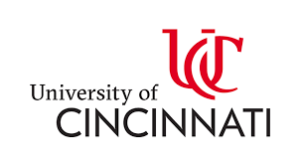Healthcare Management is a rapidly-growing industry with a projected growth rate of 18% by 2028. If you’re considering a career in the field you should expect to take courses in business, healthcare policy, and finance. This diverse blend of classes will give you the skills necessary to manage healthcare facilities and keep them running smoothly.
After graduation, you’ll be able to find employment in a wide variety of facilities, such as:
- Hospitals
- Nursing Homes
- Rehab Facilities
- Insurance Companies
- Colleges and Universities
Every school has different Master’s in Healthcare Administration requirements. But if you’ve spent some time browsing admissions pages, you’ve probably found that many schools require previous healthcare experience, as well as high scores on the GRE Exam. This is why it’s important to understand what the GRE is and why it’s so important.
What is the GRE Exam?
The GRE Exam is required by many schools that offer an accredited Master’s in Healthcare Administration. It’s the most widely-used graduate admissions test in the United States, and it’s offered at testing centers across the country.
The GRE Exam tests students’ knowledge on three main topics:
- Quantitative Reasoning
- Verbal Reasoning
- Analytical Writing
Each section is scored on a scale that ranges from 130 to 170, and students receive both GRE Verbal and Quantitative scores. There are only 41 possible scores to earn on the test, so each question can make a major difference in your final score.
Colleges use GRE scores along with grades, extracurricular activities, and other factors to determine which applicants would be the best fit for their program. Some schools require a minimum GRE score for all graduate applicants as well.
Will I be required to take the GRE for a Healthcare Management Master’s program?
If you’re worried about passing the GRE, the good news is that many accredited Master’s in Healthcare Administration programs don’t require it. Online programs in particular are far less likely to require the GRE than their on-campus counterparts. It’s possible to find a reputable, well-respected Healthcare Management Master’s program that doesn’t require the GRE.
The best thing to do is research each program’s requirements individually before you decide whether or not to take the test. If you can put together a list of schools that suit your interests and don’t require the GRE, the test may not be necessary.
However, since many of the more competitive Healthcare Management programs require the GRE, it may be worth considering—particularly if you’re interested in attending classes on-campus. Taking the GRE may qualify you for more desirable programs. It could also give you an advantage over other students who haven’t taken it, even if GRE scores aren’t required by your school of choice.
How can I prepare for the GRE?
The best time to start preparing for the GRE is during your undergraduate program. If you’re still finishing up your bachelor’s degree and you plan on going to graduate school, you should consider signing up for the GRE anytime after your spring semester of junior year. This will give you plenty of time to study before it’s time for the actual test, and you’ll be able to take your time deciding on the best graduate program as well.
Another little-known fact is that students can take the GRE up to five times per year. The sooner you take the test for the first time, the more chances you’ll have to take it again to perfect your score!
There are countless GRE study guides available in bookstores and online. Experts agree that the following tips can help you prepare:
- Take practice tests
- Practice frequently
- Become highly familiar with the format of the test
- Get enough sleep and eat healthy before the test
Additionally, if you’re currently attending an undergraduate program, your school may offer GRE prep courses where you can study alongside other students who plan on taking the test.
What are some Healthcare Management Master’s programs that don’t require the GRE?
If the idea of taking the GRE still sounds overwhelming, consider applying to the following schools. These respected schools don’t require GRE scores for application, so you won’t have to worry about scheduling a test or studying for weeks on end.
 The University of Scranton
The University of Scranton
The accredited Master’s in Healthcare Administration at the University of Scranton is known across the country for its high standards and excellent job placement rates. An impressive 94.7% of graduates from the 2016-2017 school year immediately found a job after graduation! To gain entrance into the program, you won’t have to take the GRE Exam. The only requirements are:
- A bachelor’s degree from an accredited university
- A resume or CV
- Undergraduate transcripts showing a GPA of at least 3.0
- Three letters of reference
- An interview with the program director
To get started, all you need to do is fill out the graduate school application.
 The University of Cincinnati
The University of Cincinnati
The University of Cincinnati offers a 100% online Master’s of Health Administration with no campus visits required. This degree is a great choice for working professionals who don’t have time to commute to campus every day. The program has no GRE requirement, and only requires the following for admission:
- A bachelor’s degree from an accredited university
- Undergraduate transcripts showing a GPA of at least 3.0
- Three letters of reference
- A letter of intent from the student
- A resume or CV
You can view the graduate application here.
 Queens University of Charlotte
Queens University of Charlotte
With no GREs required and no application fee, the Queens University of Charlotte is an excellent, affordable option for students seeking an online MHA. Throughout their education at the Queens University, students focus on the ACHE five core competencies:
- Communication
- Leadership
- Professionalism
- Healthcare knowledge
- Business expertise
To be considered for the program, students are required to submit:
- Proof of a bachelor’s degree from an accredited university
- Undergraduate transcripts showing a GPA of at least 3.0 (or 2.5 to 2.99 with five years of work experience in healthcare management)
- Two letters of reference
- Two years of experience in a healthcare facility
- A resume
You can view the application for the online MHA in Healthcare Administration here.
Erica Ciko Campbell
Bachelor of Science (B.S.), Biology| Utica College
Associate of Science (A.S.)| Herkimer County Community College
October 2019
More Articles of Interest:
- What is the Best Bachelor’s Degree to get if you Want to Work in Healthcare Management?
- Are Online Healthcare Administration Programs Viewed Differently than On-Campus Programs?
- Are There Any Completely Online Programs To Get My Master’s In Healthcare Administration?
- Do most Master’s Programs in Healthcare Administration require me to take the GRE?
